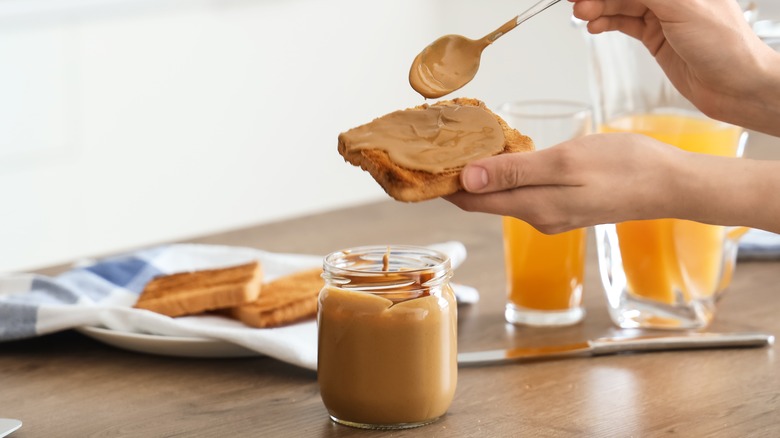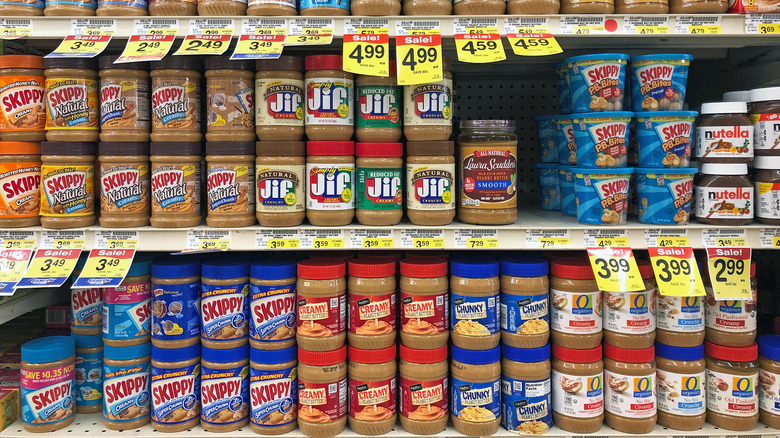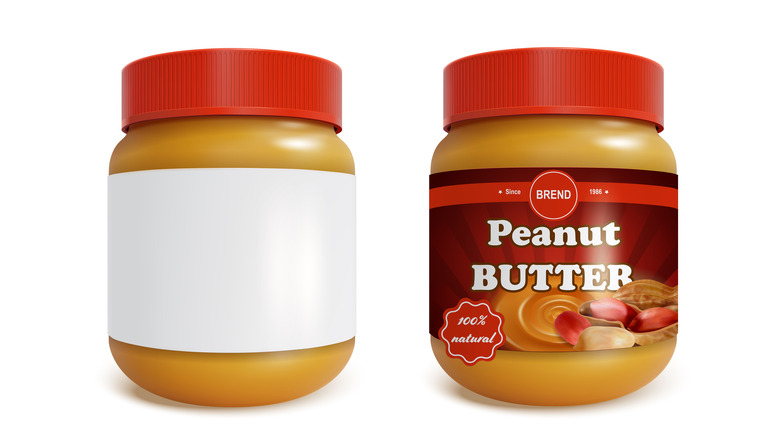Is There Really A Difference Between Generic And Brand Name Peanut Butter?
Peanut butter is undoubtedly an American staple. John Harvey Kellogg first introduced peanut butter to the public in the 1890s, and over 100 years later, the world cannot get enough of the stuff. In 2023, Americans alone consumed more than 4 pounds of peanut butter per year on average, an all-time high according to the National Peanut Board. Its ever-growing popularity has led many food brands to offer their own peanut butter products. With the endless options, the average consumer may be overwhelmed and even confused by the different jars lining the peanut butter aisle. What makes one jar of peanut butter different from another, anyway? Is it worth splurging on the brand-name goods, or are the generics sufficient? To answer these questions, all you need to do is briefly read the small print.
All peanut butter may be equally delicious, but that does not mean it is all created equal. While the generic versions may seem worse than their big-name counterparts, the brand label does not reflect the quality of peanut butter. The presence of additional ingredients (or lack thereof) beyond peanuts is much more indicative of what kind of peanut butter you are getting.
Parsing out the best peanut butter
Grocery shoppers may wonder if, like many other products in the store, generic peanut butter spreads are just as good as the peanut butter products from familiar big-name brands, such as Skippy and Jif. The difference in quality between generic and big-brand peanut butter products does not come down to the companies' brand recognition but rather to the ingredients in the jars. Some peanut butter spreads have nothing but peanuts, or maybe peanuts and salt. Others, however, include stabilizers (like palm oil or hydrogenated vegetable oils) that keep the peanuts' natural oil from separating and added sugar, which enhances the peanut butter's flavor.
Both generic and brand-name peanut butter products can contain these additives. Shoppers who are wary of these ingredients should focus on the jars' ingredient lists rather than brand labels. Some of the unhealthiest store-bought peanut butters, in fact, come from big brands.
How a high-grade peanut butter can come at a low-grade price
If the differences in peanut butter come down to mere ingredients, consumers may wonder how a high-quality generic product can cost less than a lower-quality brand-name product. Lower costs mean lower quality, right?
The truth is, peanut butter with a generic label is not necessarily lower in grade. Generic products are generally cheaper because their companies do not promote them. Brand-name peanut butter companies, however, do promote their products. To maximize their profits and off set the cost of promotion, they must increase the price of their products.
With the simplicity of the product, the differences between brands like Jif Peanut Butter and Skippy Peanut Butter tend to be marginal. The same can be said for generic peanut butter products. Although the peanut butter section in a typical grocery store can seem daunting, it is best not to overthink your choice. As long as it is peanut butter, it is bound to be delicious.


